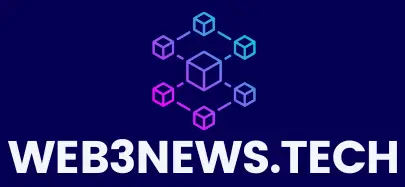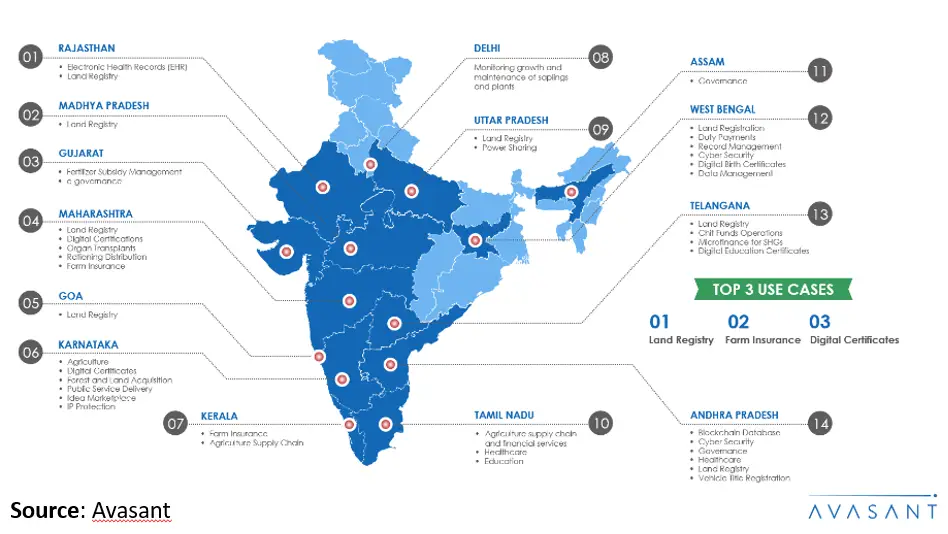How Blockchain Can Transform India
Introduction
Blockchain technology has emerged as a revolutionary force capable of transforming various sectors around the world. In India, a country with a rapidly growing digital economy and a population of over 1.4 billion, blockchain offers immense potential to enhance transparency, reduce corruption, and drive economic growth. This article explores how blockchain can transform India by analyzing its current applications, future potential, and the challenges that need to be addressed to realize its benefits fully.
Current State of Digital Infrastructure in India
Overview of Digital Adoption in India
India has made significant strides in digital adoption over the past decade, with initiatives like Digital India promoting widespread internet usage and digital services. Today, a large percentage of the population has access to the internet, and there is a growing reliance on digital payments and online services.
Key Challenges in Current Systems
Despite these advances, there are still challenges in India’s digital infrastructure, including issues of data privacy, cybersecurity, and the need for more efficient systems in sectors like finance, healthcare, and governance. These challenges make the case for adopting blockchain technology even stronger, as it offers solutions that can enhance security, transparency, and efficiency.
How Blockchain Works
Basic Principles of Blockchain
Blockchain is a decentralized ledger technology that allows data to be recorded securely, transparently, and immutably. Each block in a blockchain contains a list of transactions, and once data is recorded in a block, it cannot be altered without altering all subsequent blocks, which requires consensus from the network participants.
Types of Blockchain (Public vs. Private)
There are different types of blockchains, including public blockchains, which are open and accessible to anyone, and private blockchains, which are restricted to specific participants. Both types have their uses in different sectors, depending on the requirements for security, transparency, and control.
Potential of Blockchain in India’s Economy
Enhancing Transparency and Reducing Corruption
One of the significant ways blockchain can transform India is by enhancing transparency and reducing corruption, especially in government processes. Blockchain’s immutable ledger can ensure that all transactions are recorded transparently, making it difficult for corruption to go unnoticed.
Streamlining Government Processes
Blockchain can streamline various government processes by automating tasks, reducing paperwork, and ensuring data integrity. For example, blockchain can be used for secure and transparent voting systems, efficient public distribution systems, and accurate record-keeping.
Boosting Financial Inclusion
Blockchain technology can also boost financial inclusion in India by providing secure and accessible financial services to unbanked and underbanked populations. Blockchain-based digital identities and wallets can facilitate access to banking, loans, and insurance services.
Blockchain in Governance
Land Registry and Property Rights
India faces challenges in land registry management, with records often being outdated, inaccurate, or manipulated. Blockchain can provide a transparent and tamper-proof system for managing land records, ensuring secure property rights and reducing disputes.
Digital Identity Management
Blockchain can revolutionize digital identity management by providing citizens with secure, self-sovereign identities that they control. This can reduce the risk of identity theft and improve access to various government services.
Public Distribution System
India’s public distribution system, which delivers essential goods to citizens, often suffers from inefficiencies and corruption. Blockchain can provide a transparent mechanism to track goods from production to distribution, ensuring accountability and reducing leakages.
Financial Sector Transformation
Banking and Payments
Blockchain can transform banking and payments in India by reducing transaction costs, increasing security, and enabling faster settlement times. Blockchain-based payment systems can provide a more efficient alternative to traditional banking methods.
Reducing Fraud in Financial Transactions
The financial sector in India is plagued by fraud and data breaches. Blockchain’s secure and transparent nature can significantly reduce fraud by ensuring that all transactions are recorded and verified on a tamper-proof ledger.
Cross-Border Payments
Cross-border payments are often slow and expensive due to multiple intermediaries. Blockchain can streamline cross-border transactions by providing a direct and secure method for transferring funds internationally, reducing costs and increasing speed.
Blockchain for Agriculture
Supply Chain Transparency
Blockchain can bring transparency to the agricultural supply chain in India by recording every step of the process, from production to delivery. This can help in ensuring fair prices for farmers and reducing the role of intermediaries.
Smart Contracts for Farmers
Smart contracts can automate agreements between farmers and buyers, ensuring that payments are made promptly once the agreed conditions are met. This can reduce delays and disputes, providing more security for farmers.
Fair Pricing and Reducing Intermediaries
By using blockchain, farmers can directly connect with buyers, ensuring fair pricing and reducing the influence of middlemen. This can lead to better income for farmers and more affordable prices for consumers.
Healthcare Sector Reforms
Secure Patient Records
Blockchain can secure patient records by storing them in a decentralized, tamper-proof ledger. This ensures that medical data is accurate, secure, and accessible only to authorized individuals, improving patient privacy and healthcare outcomes.
Drug Traceability
Counterfeit drugs are a significant problem in India. Blockchain can provide a transparent system for tracking drugs from manufacture to delivery, ensuring that only genuine products reach consumers.
Efficient Insurance Processing
Insurance processing in India can be cumbersome and slow. Blockchain can automate and streamline claims processing through smart contracts, ensuring faster and more accurate payouts.
Education and Certification
Decentralized Education Records
Blockchain can decentralize education records, providing students with verifiable, tamper-proof credentials that can be easily shared with employers or other institutions, reducing the need for extensive verification processes.
Verifiable Academic Credentials
Blockchain can provide a secure platform for issuing and verifying academic credentials, reducing fraud and ensuring that qualifications are genuine and recognized globally.
Challenges to Blockchain Adoption in India
Technical Barriers
One of the primary challenges to blockchain adoption in India is the technical barrier. Implementing blockchain technology requires significant changes to existing systems and infrastructure, which can be costly and complex.
Regulatory and Legal Challenges
The regulatory landscape in India regarding blockchain is still evolving. There is a need for clear regulations and guidelines to ensure that blockchain technology can be implemented securely and effectively across different sectors.
Public Awareness and Education
For blockchain to be widely adopted in India, there needs to be greater awareness and education about its benefits and potential. This requires efforts from both the public and private sectors to educate the population and build trust in the technology.
Expert Insights on Blockchain in India
Quotes from Industry Leaders
Industry leaders in India have highlighted the transformative potential of blockchain, particularly in enhancing transparency, reducing costs, and driving economic growth.
Predictions on Future Developments
Experts predict that as blockchain technology matures, it will see greater adoption across various sectors in India, leading to more efficient and secure systems and processes.
Case Studies of Blockchain Use in India
Successful Implementations
There have been several successful implementations of blockchain in India, such as in land registry management, supply chain transparency, and digital identity systems, demonstrating its potential to address various challenges.
Lessons Learned from Pilot Projects
Pilot projects in India have provided valuable lessons on the best practices for implementing blockchain technology, including the importance of stakeholder engagement and the need for robust infrastructure and regulatory support.
Future of Blockchain in India
Emerging Trends in Technology
The future of blockchain in India looks promising, with emerging trends in technology, such as interoperability and scalability, making it more feasible for widespread adoption.
Potential Sectors for Growth
Several sectors in India, including finance, healthcare, and agriculture, have significant potential for growth through blockchain adoption, providing opportunities for innovation and improved services.
Practical Steps for Implementing Blockchain in India
Strategies for Businesses
Businesses in India looking to implement blockchain should start by understanding the technology and identifying areas where it can provide the most value. Collaborating with blockchain experts and adopting a phased approach can help ensure successful implementation.
Government Policies to Support Adoption
The Indian government can play a crucial role in supporting blockchain adoption by providing clear regulations, investing in infrastructure, and promoting public-private partnerships to drive innovation and adoption.
Common Misconceptions About Blockchain
Clarifying Myths
There are several misconceptions about blockchain, such as it being solely associated with cryptocurrencies. Blockchain technology has applications far beyond digital currencies, including enhancing transparency, security, and efficiency in various sectors.
Benefits Beyond Cryptocurrency
Blockchain’s benefits go beyond cryptocurrency, offering secure, decentralized systems for managing data, transactions, and identities, which can transform multiple sectors in India.
Conclusion
Blockchain technology holds the potential to transform India by enhancing transparency, reducing corruption, and driving economic growth across various sectors. As India continues to develop its digital infrastructure, blockchain can play a pivotal role in addressing existing challenges and fostering innovation. Stakeholders, including businesses, government, and the public, must work together to understand, adopt, and implement blockchain solutions to unlock its full potential.
Also Read: What is Decentralized Identity in Blockchain?
FAQs
What is blockchain technology?
Blockchain technology is a decentralized, secure, and transparent ledger system that allows for the recording and verification of data across a network of computers.
How can blockchain benefit India?
Blockchain can benefit India by enhancing transparency, reducing corruption, streamlining government processes, boosting financial inclusion, and transforming various sectors, including finance, agriculture, healthcare, and education.
What are the challenges of implementing blockchain in India?
Challenges include technical barriers, regulatory and legal uncertainties, and the need for greater public awareness and education about the technology.
How is blockchain different from traditional databases?
Unlike traditional databases, blockchain is decentralized and immutable, meaning that data cannot be altered once recorded. This provides a higher level of security and transparency.

